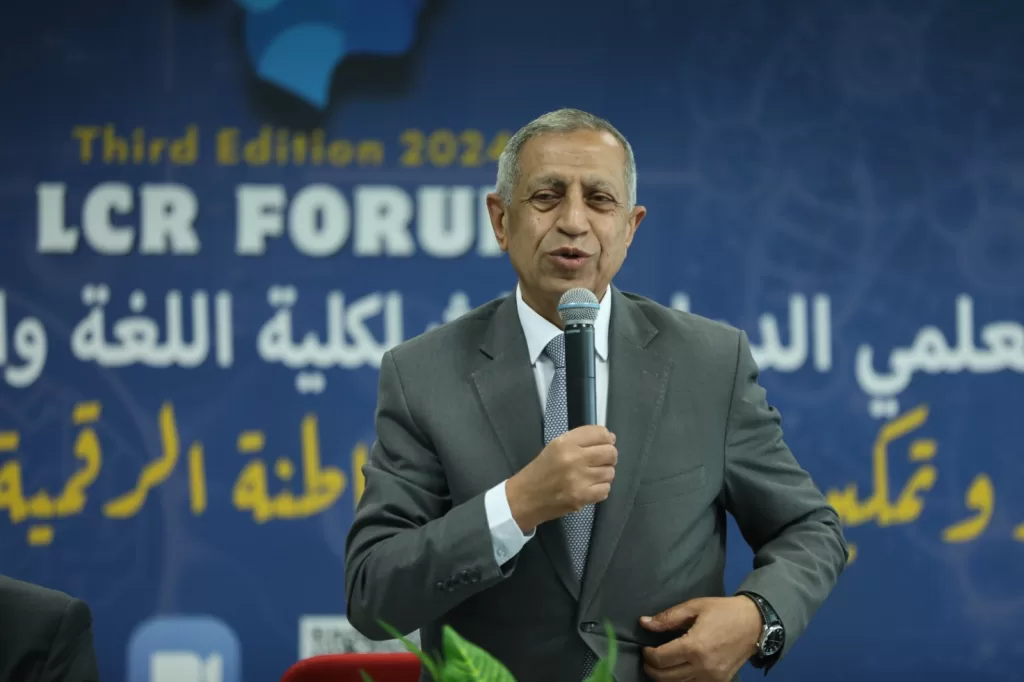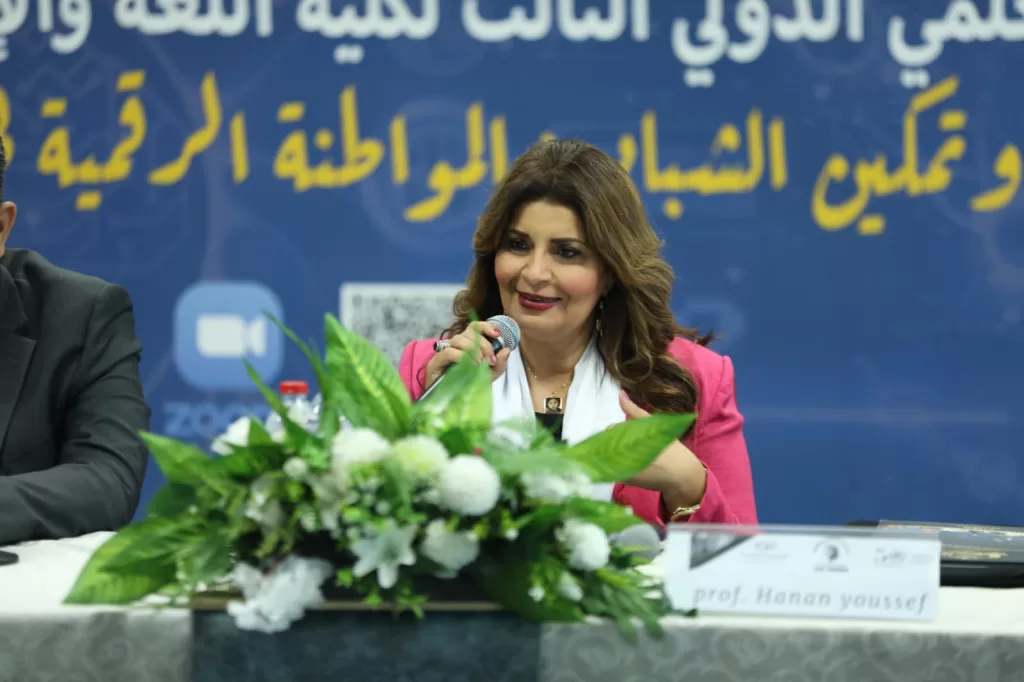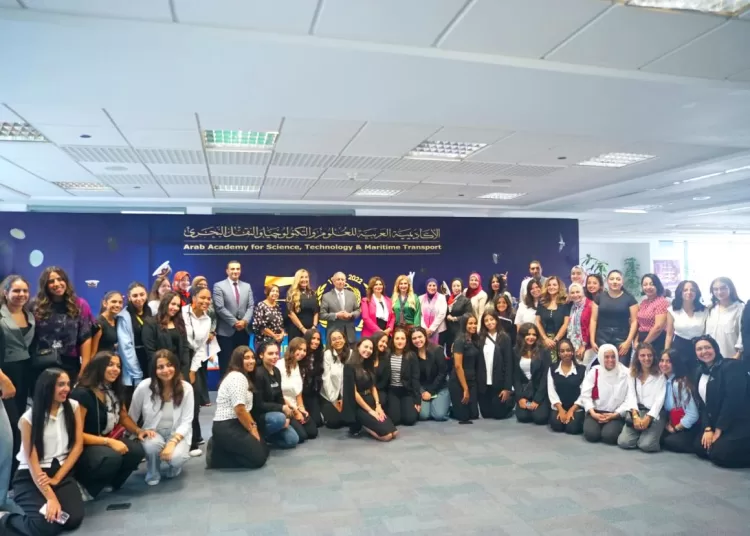Conclusion 3rd edition of (LCR) of College of Language and communication:

The Third edition of Language and Communication International Scientific Forum (LCR) of the College of Language and communication, held at the Smart Village branch of the Arab Academy for Science, Technology, and Maritime Transport (AASTMT), concluded its three-day sessions with a series of important recommendations concerning the relationship between media, language, artificial intelligence, and youth empowerment.
Among the recommendations the forum included are the following:
1. Widespread Integration of Digital Media Literacy: Incorporating digital media literacy into Arab educational curricula to raise awareness among youth and enhance their critical engagement with digital media influences and content that do not adhere to journalistic standards, such as respect for privacy, protection of national identity, safeguarding personal data, and honouring social and cultural values, while combating misinformation and fake news.
2. Designing Media Campaigns: Emphasising the need for media campaigns aimed at clearly defining concepts associated with digital citizenship and establishing foundational principles for using digital technology responsibly.
3. Creating an Ethical Framework: Inviting academics and experts in digital technology to develop a comprehensive ethical code that outlines appropriate use of digital advancements and artificial intelligence, aligned with societal needs.
4. Incorporating Digital Citizenship Skills: Advocating for the inclusion of essential digital citizenship skills and their practical applications within university curricula.
5. Leveraging Artificial Intelligence: Utilising artificial intelligence applications to enhance youth participation in various developmental areas, maximising effectiveness both in awareness-raising and execution.
6. Promoting Successful Youth Models: Highlighting successful youth-led initiatives that promote digital culture and its related products.
7. Customised Communication via AI: Using artificial intelligence to craft targeted messages that promote youth creativity, particularly in digital fields.
8. Raising Awareness of AI Applications: Increasing awareness of artificial intelligence applications and their potential to develop the skills and capacities of young minds.
9. Focusing on Arabic Digital Content: Prioritising the development of Arabic digital content related to digital citizenship to encompass all its positive attributes.
10. Addressing Algorithmic Bias: Recognising the issue of algorithmic bias that can distort developmental achievements in digital citizenship and youth empowerment, while revealing misleading mechanisms related to this issue.
11. Practical Applications of AI for Youth Empowerment: Using artificial intelligence in practical ways to empower youth without getting bogged down in controversial topics regarding potential threats posed by AI as a competitor in various job sectors.
12. Understanding Digital Citizenship Challenges: Utilising insights from the challenges of digital citizenship and applying artificial intelligence in educational processes, while considering the unique nature of each educational field.
13. Interdisciplinary Studies Proposal: Proposing an interdisciplinary academic programme under the title “Media and Artificial Intelligence,” which would be a first of its kind in the Middle East.

Finally, the forum called upon Arab media ministers to adopt the concept of digital citizenship through an initiative by the Faculty of Language and Media, launching the “Media and Digital Citizenship” project aimed at harnessing the benefits of digital literacy while protecting against the downsides of irresponsible digital media engagement.
The conference was held under the patronage of Professor Ismail Abdel-Afar, President of the Academy, and chaired by Dr. Hanan Youssef, with participation from over 100 researchers and experts across various fields of media, language, and artificial intelligence from more than 25 countries.






Discussion about this post